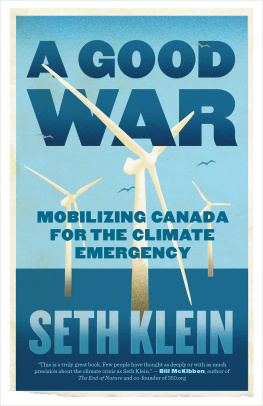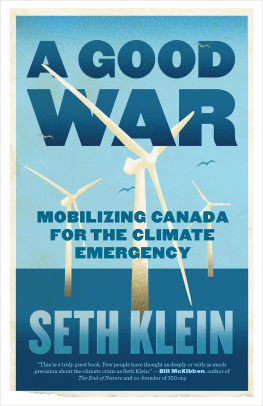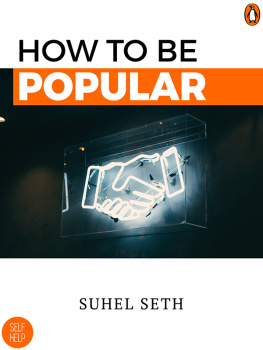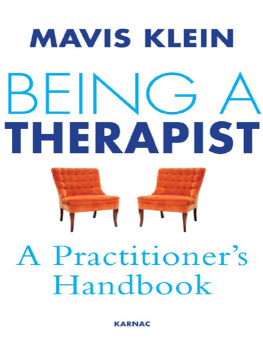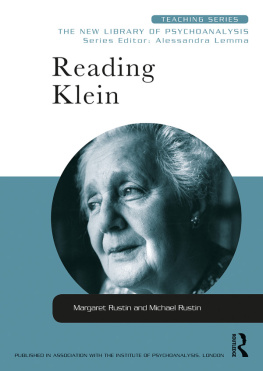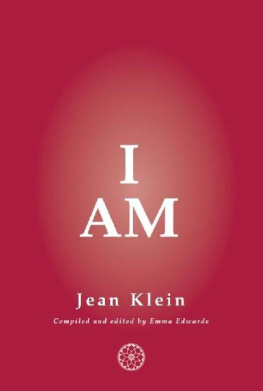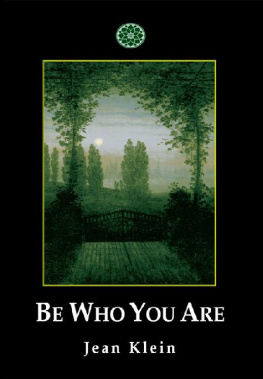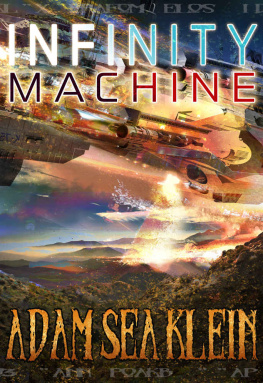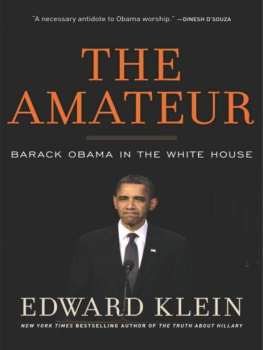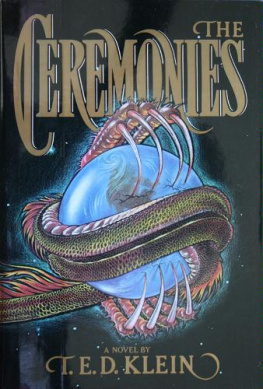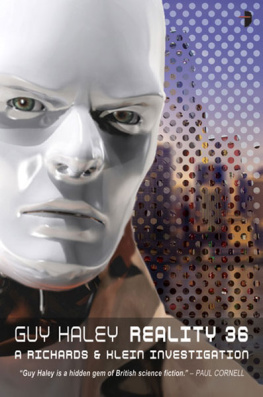Seth Klein - A Good War
Here you can read online Seth Klein - A Good War full text of the book (entire story) in english for free. Download pdf and epub, get meaning, cover and reviews about this ebook. year: 2020, publisher: ECW Press, genre: Politics. Description of the work, (preface) as well as reviews are available. Best literature library LitArk.com created for fans of good reading and offers a wide selection of genres:
Romance novel
Science fiction
Adventure
Detective
Science
History
Home and family
Prose
Art
Politics
Computer
Non-fiction
Religion
Business
Children
Humor
Choose a favorite category and find really read worthwhile books. Enjoy immersion in the world of imagination, feel the emotions of the characters or learn something new for yourself, make an fascinating discovery.
- Book:A Good War
- Author:
- Publisher:ECW Press
- Genre:
- Year:2020
- Rating:5 / 5
- Favourites:Add to favourites
- Your mark:
- 100
- 1
- 2
- 3
- 4
- 5
A Good War: summary, description and annotation
We offer to read an annotation, description, summary or preface (depends on what the author of the book "A Good War" wrote himself). If you haven't found the necessary information about the book — write in the comments, we will try to find it.
A Good War — read online for free the complete book (whole text) full work
Below is the text of the book, divided by pages. System saving the place of the last page read, allows you to conveniently read the book "A Good War" online for free, without having to search again every time where you left off. Put a bookmark, and you can go to the page where you finished reading at any time.
Font size:
Interval:
Bookmark:

A Good War
Mobilizing Canada for the Climate Emergency
Seth Klein

For Christine, who inspires me as she mobilizes others.
And for Zoe and Aaron, my love and anxiety for whom motivated this project.
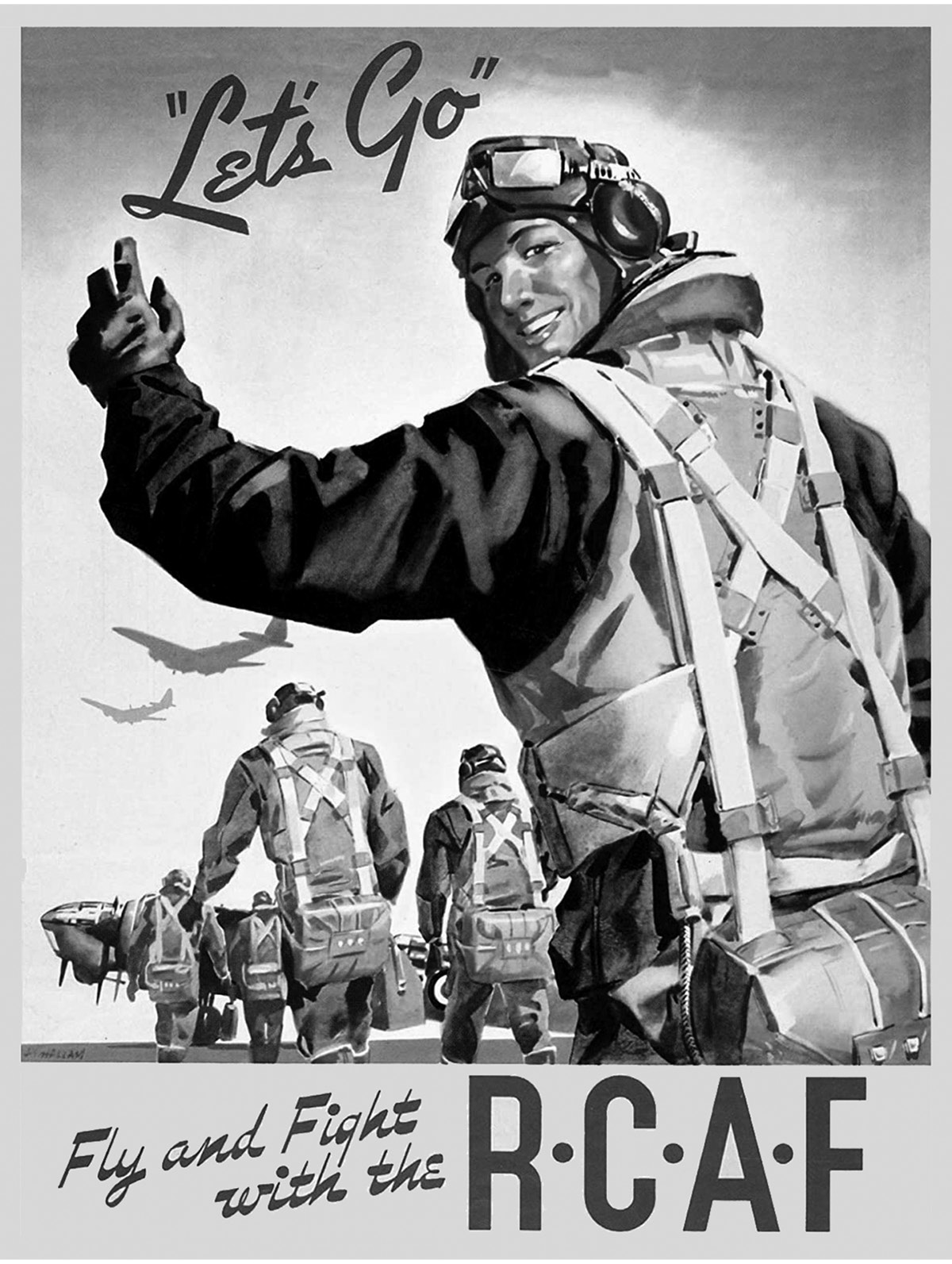
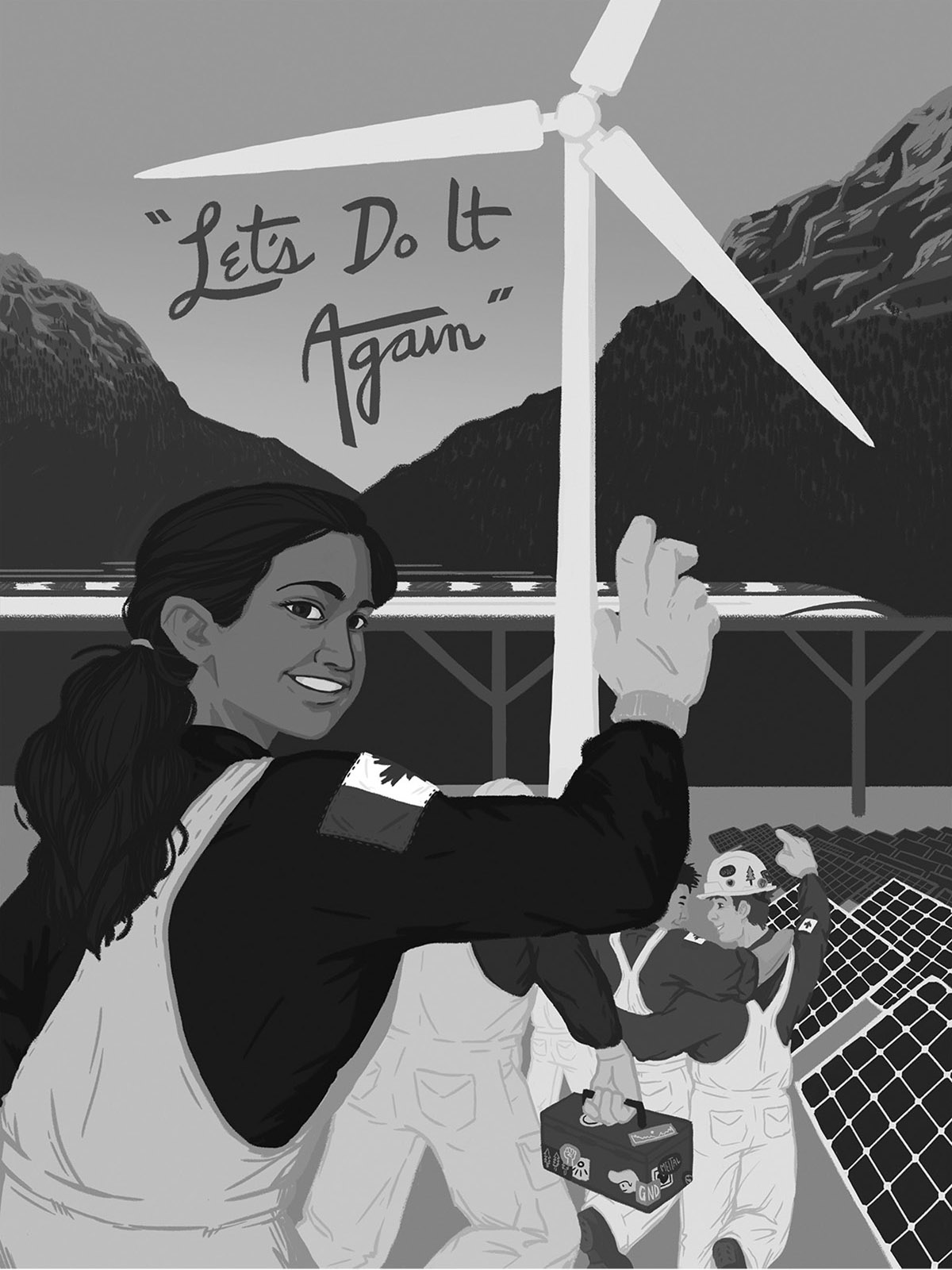
The climate emergency is upon us.
Ever since my wife, Christine, and I started living together, for a few days every August we join her parents at a place they rent each summer in the southern end of British Columbias Okanagan region. Its a lovely spot on a lake I enjoy swimming in, and a nice tradition my wifes parents have established of unplugging and spending time with friends and family.
The south Okanagan is always hot in the summer. But in the last few years, its been different. During our visits in the summers of 2017 and 2018, wildfires throughout B.C. blanketed the area with smoke. With the full sun screened from view, the days were a little cooler. That came as some welcome relief. But it also felt a little apocalyptic as we sat outside only to have ash fall from the sky.
As our 2019 visit approached, the wildfire season in B.C. had proven less severe than the previous two years. We joked that we would finally see a return to normal skies and ash-free outdoor meals. Then, the night before our arrival, a fire broke out on the ridge behind where we visit. Not knowing what to expect, we made the drive nonetheless.
When we arrived, we came upon a scene unlike any our family had ever experienced. Residents in the area had been put on evacuation alert. All afternoon, a fleet of four water-bomber float planes had been scooping up water from the lake directly in front of our rental house, flying in low over the homes in formation, collecting water in their pontoons and then doubling back to the fire on the mountain ridge behind us to dump their loads. Right up until sundown, four helicopters likewise circled back to the lake in five-minute rotations, dropping massive buckets on long cords to collect water, and then racing back to the mountain to release their cargo. This continued all week. Swimmers and boaters had to stay close to shore to keep the path clear for the aircraft. And the noise was overwhelming. Our peaceful family time suddenly felt more like a scene from Apocalypse Now, with people trying to go about their routine but for the deafening sound of the helicopters. We had to huddle together and shout to communicate. As darkness fell, the hills behind us were dotted with flames, and the sky glowed ominously red.
This is what people now nervously joke about as the new normal, although it is, in truth, not normal and but a taste of things to come. These weather events we are increasingly experiencing and the war-like mood they create represent attacks on our soil. They are a call to mobilize.
Compared to other places, my home province of British Columbia has been lucky. As I complete this book, Australia, which has been wrestling with record heat for years, has become the latest country to confront the terrifying reality of the climate emergency. Australia has just experienced a wildfire season unlike any before over two dozen people killed, approximately six million hectares burned (an area larger than Switzerland), an estimated half billion wild animals perished, over 1,400 homes destroyed, tens of thousands evacuated, whole coastal communities in New South Wales cut off from road access as flames surrounded them. The impacts that climate scientists have warned of for years are now here.
While Australias current government ranks among the worlds leading climate policy foot-draggers, there is no question the 20192020 bushfires will have a major impact on the countrys politics and the public discourse on climate. Support for the tone-deaf administration of Prime Minister Scott Morrison plummeted in the wake of the catastrophe. A poll commissioned by the Australia Institute in November 2019 (even before the worst of the crisis had occurred) found that two-thirds of Australians believe their country is facing a climate emergency, and 63% agree that governments should mobilise all of society to tackle climate change, like they did during the World Wars.
In the face of the wildfire emergency, the Australian government was forced to deploy the most military assets since the Second World War. Sadly, the emergency response was purely defensive, a rearguard action. Our governments have not yet seen fit to adopt a wartime-scale response that pre-emptively tackles the climate crisis. We mobilize to put fires out, but not to prevent them.
I suspect the wartime approach employed in this book makes some of you reading it uncomfortable. Me too.
I am an unlikely person to be writing a war story.
I am the child of war resisters.
My parents came to Canada from the United States in 1967. The Vietnam War was in full swing. In September of that year, after trying unsuccessfully to gain formal conscientious objector status, my father received his military induction notice. Further complicating matters, about a month earlier, my mother discovered she was pregnant with me and my folks had decided to hurriedly get married. Then, along with tens of thousands of other Americans, rather than accept military service or continue to live and pay taxes in a country engaged in an immoral war, my parents chose to come to Canada.
I am Canadian because of my parents refusal to participate in war. And I am forever grateful for the choice they made. Coming to Canada in those days, and in those circumstances, was very different than it is today. During the Vietnam War, a network of peace activists existed to help American draft resisters make their way to Canada good folks who helped these young Americans cross the border, offered temporary shelter and assisted these immigrants in settling in a new country.
My parents had been living in New York City. My mother, Bonnie, was beginning her career as a documentary filmmaker, and my father, Michael, was a pediatric resident at Albert Einstein College of Medicine in the Bronx. The Montreal Council to Aid War Resisters advised my parents to fly into what was then Dorval Airport (now Montreal-Trudeau International Airport) after midnight. They were told that the immigration officers on duty late at night were more likely to be French-Canadian, since in those days the Francophones generally got the crappy nighttime shifts, and the French-Canadians were much more likely than their English-Canadian counterparts to oppose the war.
So thats what they did. And sure enough, my parents were met by a Francophone immigration officer who, upon hearing their declaration (and with much more discretion than exists today), gave them landed immigrant status in 20 minutes and a kiss on both cheeks for good measure. Imagine that.
My familys war resistance goes even further back. My Jewish great-grandparents all escaped Tsarist Russia, fleeing the pogroms. My paternal great-grandfather, fearing conscription into the Russian monarchs military, set sail for America in the early 1900s and later brought over his family.
Font size:
Interval:
Bookmark:
Similar books «A Good War»
Look at similar books to A Good War. We have selected literature similar in name and meaning in the hope of providing readers with more options to find new, interesting, not yet read works.
Discussion, reviews of the book A Good War and just readers' own opinions. Leave your comments, write what you think about the work, its meaning or the main characters. Specify what exactly you liked and what you didn't like, and why you think so.

